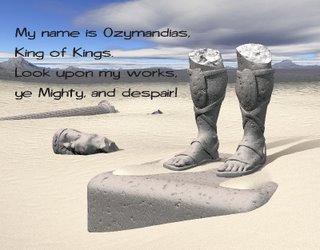Central Idea: Sonnet 55 is a love poem. But this speaker’s idea of love is about the persistence of memory and the chance of the beloved achieving eternal life. Here we can find a heartfelt burst of confidence as the poet privileges to have the power to keep his friend’s memory alive forever. What distinguishes Shakespeare is that he prices the identity of the treasured. He recognizes that the beloved has his own individual immortality, in no way dependent on poetry. The central idea of the poem is the assertion of the immortality of the poet’s sonnets to withstand the forces of decay over time. The poet boldly asserts that death is ineffective in the face of his sonnets’ immortality.
Theme:
“”Sonnet 55” by William Shakespeare has two themes: the passing of time and the immortalizing of a young man. The first half of Shakespeare’s sonnets shared out with his love for a young man and forever keeping him alive through the sonnets that Shakespeare wrote.
Sonnet 55, one of Shakespeare’s most celebrated poetries, asserts the immortality of the poet’s sonnets to resist the forces of decay over time. Here we find an emotional burst of confidence as the poet claims to have the power to keep his friend’s memory alive evermore. The sonnet continues this theme in the sonnet, in which the poet likens himself to a distiller of truth.
The poem address the same theme of immortality, but the poet boasts that not only natural forces but human wars and battles cannot blot out his sonnets, which are a living record of the youth. Monuments and statues may be desecrated during war, but not so these rhymes.The poet assures the youth that his beauty will remain immortal as long as one single person still lives to read these sonnets, which themselves will be immortal.
Sonnet 55 builds on the theme of poetry outlasting physical monuments to the dead. This theme of immortality through verse is common in Shakespeare’s sonnets. The wreck of time is a recurring theme in Shakespeare’s sonnets.Often it is addressed in terms of its inevitable effect on beauty and youth, especially that of the fair lord, but here its impact on statues and shrines is the emphasis.
Tone: The sonnet has a tone of both pride and humility. The speaker, undoubtedly Shakespeare, cannot afford a marble monument to the loved one or perhaps is not entitled to commission such a monument. But he knows he can write poetry that will outlast the most ostentatious tombstone. The poet’s own works are a better testament to his memory than a great pyramid. The introductory lines of Sonnet 55 create a setting of a burial ground full of stone memorials of all figures and dimensions. This put forward that the person to whom Shakespeare is addressing this sonnet is dead and that therefore the poem is a sort of ode or memorial. Otherwise, if the addressee is not dead, then this kind of poetic imagery could seem gloomy and offensive to the recipient.
The tone of the first stanza, or first four lines, replicates the great self-assurance of the poet. His dominant rhyme is paralleled to sturdy marble and solid, gilded inscriptions that mark the tombs of princes.
Conclusion: The poem concludes by saying that when Judgment day comes, you will be taken by Christ to heaven. Until then, you will live on in this sonnet and in the eyes of lovers. The poem points up the idea that neither royal marble or gold monuments will be able to outline the power of poetry. The young man will out shine even the cemetery stones that are damaged by the elements and time. When the destructive wars are fought and damages art work and statues, and the battles ruin the work of the architects and the brick masons, none of these things will burn away the memory of your life.
The poet speaks to the fact that the young man will last longer than death and oblivion in the eyes of forthcoming age group and even until the end of time. The splendour and the importance of Shakespeare’s sonnets are to be found in the words, the lines, the imagery, and the conceits.The magnificent memorials will become wrinkled, and the people remembered will in the long run, be over and done. Nevertheless, the subject of the poem will shine more bright than the time-smeared monuments and live not in carving but in spirit in Shakespeare’s verse.
Suggested Reading: Not Marble Nor the Gilded Monuments Summary by William Shakespeare in Hindi
Some online learning platforms provide certifications, while others are designed to simply grow your skills in your personal and professional life. Including Masterclass and Coursera, here are our recommendations for the best online learning platforms you can sign up for today.
The 7 Best Online Learning Platforms of 2022
- Best Overall: Coursera
- Best for Niche Topics: Udemy
- Best for Creative Fields: Skillshare
- Best for Celebrity Lessons: MasterClass
- Best for STEM: EdX
- Best for Career Building: Udacity
- Best for Data Learning: Pluralsight
















